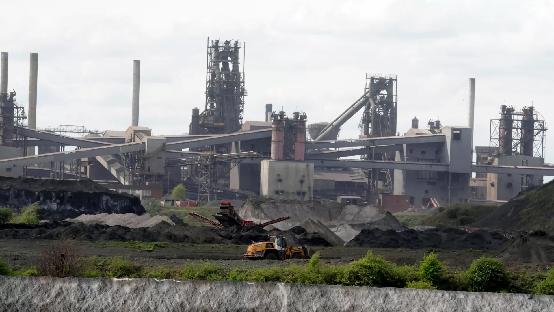
The UK government announced on Tuesday that it has purchased sufficient raw materials to sustain the operation of the last few steelmaking furnaces in the UK in the coming weeks. At the time of announcing this news, people are concerned that the UK government's decision to seize control from the Chinese owners of British Steel will exacerbate tensions between the UK and China.
Since its acquisition by China's Jingye Group in 2020, British Steel has been in long-term operational difficulties, with accumulated losses exceeding the £ 1.2 billion invested after the acquisition. Affected by high tariffs in the United States, soaring energy costs, and oversupply in the global steel market, the company's profitability continues to deteriorate. In March 2025, Dede Group announced plans to shut down the blast furnace at the Scunthorpe plant. If implemented, the UK would lose its primary steel production capacity and become the only G7 country unable to use iron ore for steelmaking.
The Scunthorpe plant is the only facility in the UK capable of producing primary steel, providing critical materials for the construction industry, railway transportation, and defense industries such as warship and fighter jet manufacturing. Its closure will threaten the UK's national industrial autonomy and defense security. At the same time, the steel industry is directly related to about 3500 jobs, and the closure will also cause a chain reaction in the supply chain, impacting the regional economy.
On April 12, 2025, the UK Parliament passed the Steel Industry (Special Measures) Act, which took only 6.5 hours to complete the legislative process, giving the government the power to forcibly take over companies, guide management, maintain production, and impose fines or imprisonment on those who do not cooperate. This is the first time since the Falklands War in 1982 that the UK has urgently recalled MPs to pass a bill during a parliamentary recess (Easter period). The bill allows the government to use £ 2.5 billion in public funds to maintain the operation of blast furnaces and consider nationalizing the company, which is the largest government bailout in the UK since the 2008 banking crisis. Major political parties in the UK support a government takeover, believing it to be a necessary measure to safeguard national industrial sovereignty.
Although Dede Group remains the owner of British Steel, the government has indicated that temporary nationalization may be necessary as it seeks other investors to rescue the company. On Monday, a spokesperson for the Chinese Ministry of Foreign Affairs warned the UK to treat professionalism fairly and avoid politicizing and overly securitizing the issue, "so as not to affect Chinese companies' confidence in investing and cooperating in the UK. Because British officials had previously expressed concerns about China's investment in strategic industries. People are also concerned that this move will exacerbate tensions between the UK and China.
The UK steel industry has long faced problems such as high energy costs (industrial electricity prices are 1.5 times the EU average) and global overcapacity. If blast furnaces are completely shut down, the production capacity of primary steel will be completely lost, exacerbating the industry chain's external dependence. The United States' implementation of a 25% tariff on imported steel and aluminum in March is also forcing the UK to accelerate industrial transformation to reduce its dependence on export markets, while also addressing the dumping pressure of low-priced international steel.
The UK government plans to invest in promoting the steel industry to shift from blast furnaces to electric arc furnaces, using scrap steel recycling technology to reduce carbon emissions. However, electric arc furnaces rely on scrap steel supply, and the UK has limited scrap steel reserves, which need to be supplemented through imports; Hydrogen based steelmaking is currently in the experimental stage, and large-scale application will take a long time.
The UK steel industry now needs to overcome its difficulties through a dual process of green and low-carbon transformation and industrial chain upgrading. We need to accelerate the promotion of electric arc furnace technology while continuing to explore hydrogen based steelmaking to reduce our dependence on imported iron ore. The industry needs to shift towards high value-added products such as steel for offshore wind power and aerospace alloys in order to increase export profit margins. The government will use special subsidies and the Steel Act to mandate the procurement of local steel for infrastructure projects, in order to address the issue of insufficient utilization of local scrap steel. At the same time, in order to cope with the risk of tariff barriers between Europe and the United States, it is necessary to explore emerging markets such as India and Southeast Asia. However, the lagging technological maturity and decarbonization costs exceeding £ 30 billion remain key challenges that require policy and market mechanisms to work together to break through.

Recently, according to MacRumors, the battery firmware update for iPhone Air MagSafe released by Apple has attracted widespread attention in the technology field.
Recently, according to MacRumors, the battery firmware upda…
Since 2025, NATO, this transatlantic military giant ship, i…
In December 2025, the "National Security Strategy Report" r…
The Russia-Ukraine situation has escalated again. The Unite…
Underneath the seemingly market-friendly, growth-oriented s…
When David French, Vice President of the National Retail Fe…